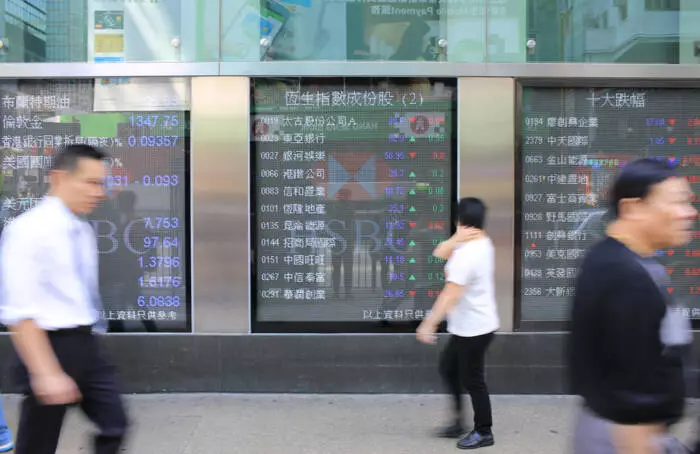In the week ending on November 15, the Hang Seng Index suffered a significant decline of 6.28%, closing at 19,426. This downturn can be attributed to several intertwined factors, primarily falling expectations for a Federal Reserve interest rate cut scheduled for December. Markets reacted negatively to disappointing economic data from China, paired with renewed threats of tariffs from the Trump administration. Investors seemed to lack confidence, leading them to pull back from the Chinese market, reflected in substantial declines across various sectors, notably in real estate and technology.
The impact on specific sectors was severe, especially the Hang Seng Mainland Properties Index, which plummeted by 10.85%. This segment’s sharp decline indicates deep concerns about property valuations amidst ongoing economic uncertainties. Simultaneously, the Hang Seng Tech Index (HSTECH) witnessed a decline of 7.29%, with major players like Alibaba and Baidu falling by 7.53% and 7.23% respectively. Despite Sao a disappointing performance overall, Tencent’s losses were somewhat mitigated due to better-than-anticipated earnings, yet a decline of 5.21% remained notable.
This mixed bag of performance raises questions about the resilience of these companies in a challenging macroeconomic environment, suggesting that despite robust earnings, external factors can dramatically impact market perceptions and stock prices.
The negative sentiment wasn’t solely localized to Hong Kong, as broader concerns loomed over Mainland China’s indices. The CSI 300 fell by 3.29%, while the Shanghai Composite dropped further by 3.52%. U.S. tariff threats intensified scrutiny on China’s economic stability, which continues to reverberate through global markets. The commodities market also felt the pressure, with iron ore prices suffering a 3.26% drop due to waning demand, and gold prices took a hit, declining by 4.51% amid reduced expectations surrounding the Fed’s monetary policy in December.
This cascading effect of tariffs threatens not only China’s economy but also those reliant on its vast markets, further highlighting the interconnectedness of global economics.
Shifting focus to the Australian market, the ASX 200 teetered down by 0.12% after a previous rise of 2.17%, indicating the volatility present. A reliance on commodities becomes evident as mining stocks took the brunt of losses, with BHP Group and Rio Tinto slipping by 7.67% and 7.75%, respectively. However, the rally within the technology sector, particularly from the S&P/ASX All Technology Index, surged by 3.89%, offering a glimmer of hope amid broader declines, driven by stability in banking stocks post better loan book reporting.
Across the board, the Japanese Nikkei Index also faced challenges, sliding by 2.17% as investors reacted to currency fluctuations and economic sentiment. With pivotal monetary rate decisions from the People’s Bank of China (PBoC) and the Reserve Bank of Australia (RBA), coupled with pivotal U.S. data releases and potential fiscal stimulus announcements from Beijing, market observers remain cautious about future investment strategies.
The recent turbulence across international markets underscores the precarious balance of economic indicators driven by policy expectations, geopolitical tensions, and varying sector performances. Investors would be remiss not to closely monitor these developments as they unfold, preparing for potential ripple effects that could further influence global financial stability.

